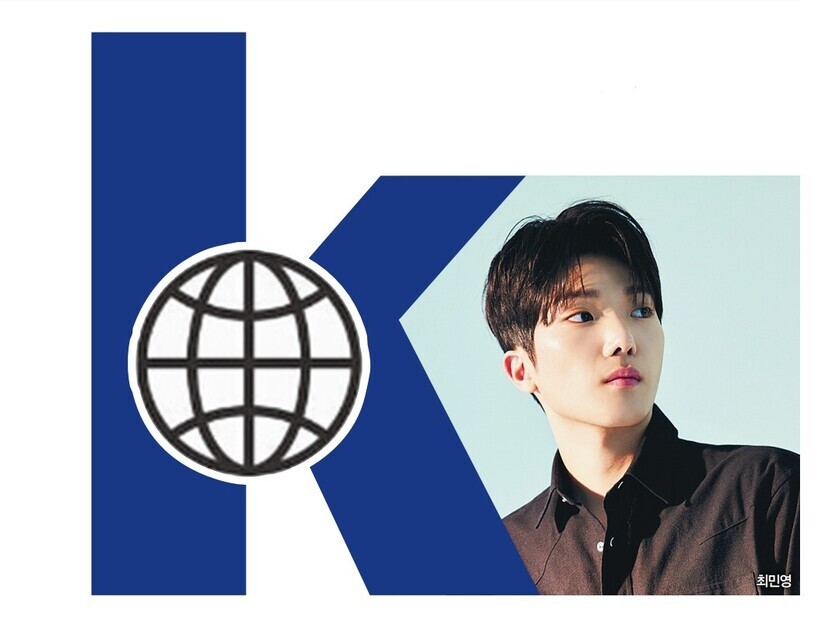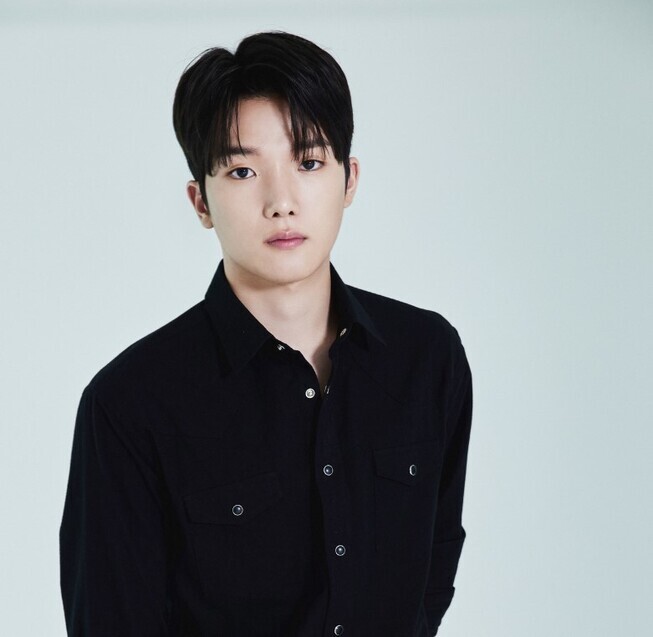hankyoreh
Links to other country sites 다른 나라 사이트 링크
Latest tide of the Korean Wave shows there’s nowhere Korean talent doesn’t belong

“A new tide is rising in the Korean Wave.”
This is what a veteran TV show producer who witnessed the first inklings of the Korean Wave before 2000 has to say about the current global content market as Korean stars, Korean culture, and a desire to understand Korean society can be seen everywhere.
The success of idol group BTS and Netflix’s “Squid Game” has heightened interest in South Korea, laying the way for countries around the world to readily jump on the Korean content train.
“Korea itself has become a mainstream topic,” commented Yun Seok-jin, a professor of Korean literature at Chungnam National University. “Now, people are starting to think that talking about Korea is very natural, which is very different from in the earlier days of the Korean Wave.”
Korea here, Korea there, Korea everywhereThe most noticeable change is that Korea is no longer portrayed as a foreign, unfamiliar place, and Korean characters are not highlighted as “the other.”
There are American teen dramas that are set in Korean high schools, such as “XO, Kitty” (Netflix), and in movies like “Emily the Criminal,” the main character’s Korean roommates are shown to be watching South Korean TV shows in the living room.
In “Beef” (Netflix), Korean immigrants no longer struggle with identity. In the series, Asian characters, including Koreans, grapple with their complex feelings surrounding the universal emotion of anger.
“We’re in a completely different environment now, as non-Asians have stopped objectifying Asians and viewing them as something heterogeneous,” said Jung Duk-hyun, a pop culture critic.

Upon its release, “XO, Kitty” was the No. 1 most-watched series in more than 60 English-speaking countries, including the US and the UK.
"I heard there are a lot of people who are working hard to learn Korean, eager to understand what we [BTS members] are saying and what we want to convey through the lyrics of our songs," leader of K-pop group BTS RM said at the recent event for the group’s 10th anniversary.
It’s natural for interest in a particular celebrity to spread to language, culture, and other curiosities, and companies are actively trying to capitalize on this. The Brazilian original drama “Além do Guarda-Roupa” (“Beyond the Wardrobe”), which will be released next month on HBO Max, is a romance fantasy in which a teenage girl meets a K-pop star through a mysterious portal.
The drama stars members of the Korean boy group Newkidd, Jinkwon and Lee Min-wook. A representative from Newkidd’s agency said, “We understand that the agency has determined that content utilizing K-pop is effective in expanding the South American market.”
K-stars making a global debutFifty Fifty, a four-member girl group that debuted in November 2022, first gained attention in the US Billboard chart, not local Korean charts. Now, Korean entertainers are competing with the rest of the world from the get-go.
While the likes of Ma Dong-seok of “Eternals” (2021) and Park Seo-joon of “The Marvels” (coming soon) used their domestic popularity as a springboard for their overseas careers, a lot of stars are now starting “globally” from scratch.
Choi Min-young, who plays the male lead in “XO, Kitty,” auditioned for the role after seeing an Instagram announcement and sending in his CV and self-tape.
“I started with a vague idea that I wanted to be in a Hollywood movie,” says Choi, adding that he “auditioned several times via Zoom.”
Jin-kwon and Lee Min-wook also applied and were cast in “Além do Guarda-Roupa” after three months of auditions.

A newcomer actor who has been through several of these auditions explained, “With the online streaming era, there have been a lot more opportunities to audition around the world.”
“The competition is especially fierce for overseas work, where Korean actors and singers are also applying,” they added.
The overseas work opens up new possibilities, in that actors can be selected regardless of how popular they are in Korea. Another new trend is the availability of opportunities even when they don’t speak English with native fluency, since they are often interacting with other Koreans.
“My experience living in Canada for about a year when I was 8 helped me somewhat, but I couldn’t speak English that well,” Choi said.
“These were works where Asians were the ones taking the initiative and driving the story rather than being consumed as marginal figures, so English ability wasn’t all that important,” he added.
Full-scale Korean expansionCo-productions with foreign companies have also been on the rise. “The Big Door Prize,” a 10-part American series that premiered in March on Apple TV+, was co-produced by Korea’s Studio Dragon and US-based Skydance Television, with US actors appearing in it. It has earned rave reviews and was greenlit for a second season.
“See Hear Love,” which recently debuted on Prime Video in Japan, is a Korean-Japanese collaboration with Korean staff and Japanese actors.
In some cases, Korean creators are being enlisted directly. Last year, a prominent US entertainment agency signed a contract with Korean television director Lee Myung-woo, and preparations began for a story on the musical lives of Korean Americans.

The scope of the Korean Wave continues to expand. Last November, the “Romeo and Juliet” spinoff musical “& Juliet” opened on Broadway. Korean actor Joomin Hwang took the stage in a “multi” role (playing numerous parts) and as an understudy for the male lead.
At a time when musical productions remain more conservative about casting East Asians than films or TV series, Hwang became the first Korean actor to take on a lead role, rather than an “Asian” one. He previously played the part of a Hatchet Soldier in Season 2 of the US series “Iron Fist,” as well as a role in the film “Hail Mary!”
“As things like YouTube and streaming services have broken down cultural boundaries, Korean content has been expanding with synergy effects in various areas,” explained Yun Suk-jin.
By Nam Ji-eun, staff reporter
Please direct questions or comments to [english@hani.co.kr]

Editorial・opinion
![[Column] Welcome to the president’s pity party [Column] Welcome to the president’s pity party](https://flexible.img.hani.co.kr/flexible/normal/500/300/imgdb/original/2024/0515/3917157400447943.jpg) [Column] Welcome to the president’s pity party
[Column] Welcome to the president’s pity party![[Editorial] Korea must respond firmly to Japan’s attempt to usurp Line [Editorial] Korea must respond firmly to Japan’s attempt to usurp Line](https://flexible.img.hani.co.kr/flexible/normal/500/300/imgdb/original/2024/0514/2317156736305813.jpg) [Editorial] Korea must respond firmly to Japan’s attempt to usurp Line
[Editorial] Korea must respond firmly to Japan’s attempt to usurp Line- [Editorial] Transfers of prosecutors investigating Korea’s first lady send chilling message
- [Column] Will Seoul’s ties with Moscow really recover on their own?
- [Column] Samsung’s ‘lost decade’ and Lee Jae-yong’s mismatched chopsticks
- [Correspondent’s column] The real reason the US is worried about Chinese ‘overcapacity’
- [Editorial] Yoon’s gesture at communication only highlights his reluctance to change
- [Editorial] Perilous stakes of Trump’s rhetoric around US troop pullout from Korea
- [Guest essay] Preventing Korean Peninsula from becoming front line of new cold war
- [Column] The state is back — but is it in business?
Most viewed articles
- 1[Column] Welcome to the president’s pity party
- 2Unexpected rate of AI development requires timely discussion of side effects
- 3[Editorial] Transfers of prosecutors investigating Korea’s first lady send chilling message
- 4Korean opposition decries Line affair as price of Yoon’s ‘degrading’ diplomacy toward Japan
- 5Could Korea’s Naver lose control of Line to Japan?
- 6US has always pulled troops from Korea unilaterally — is Yoon prepared for it to happen again?
- 7Second suspect nabbed for gruesome murder of Korean in Thailand, 1 remains at large
- 8Number of foreign residents in S. Korea triples over ten years
- 9[Correspondent’s column] The real reason the US is worried about Chinese ‘overcapacity’
- 10[Column] Will Seoul’s ties with Moscow really recover on their own?